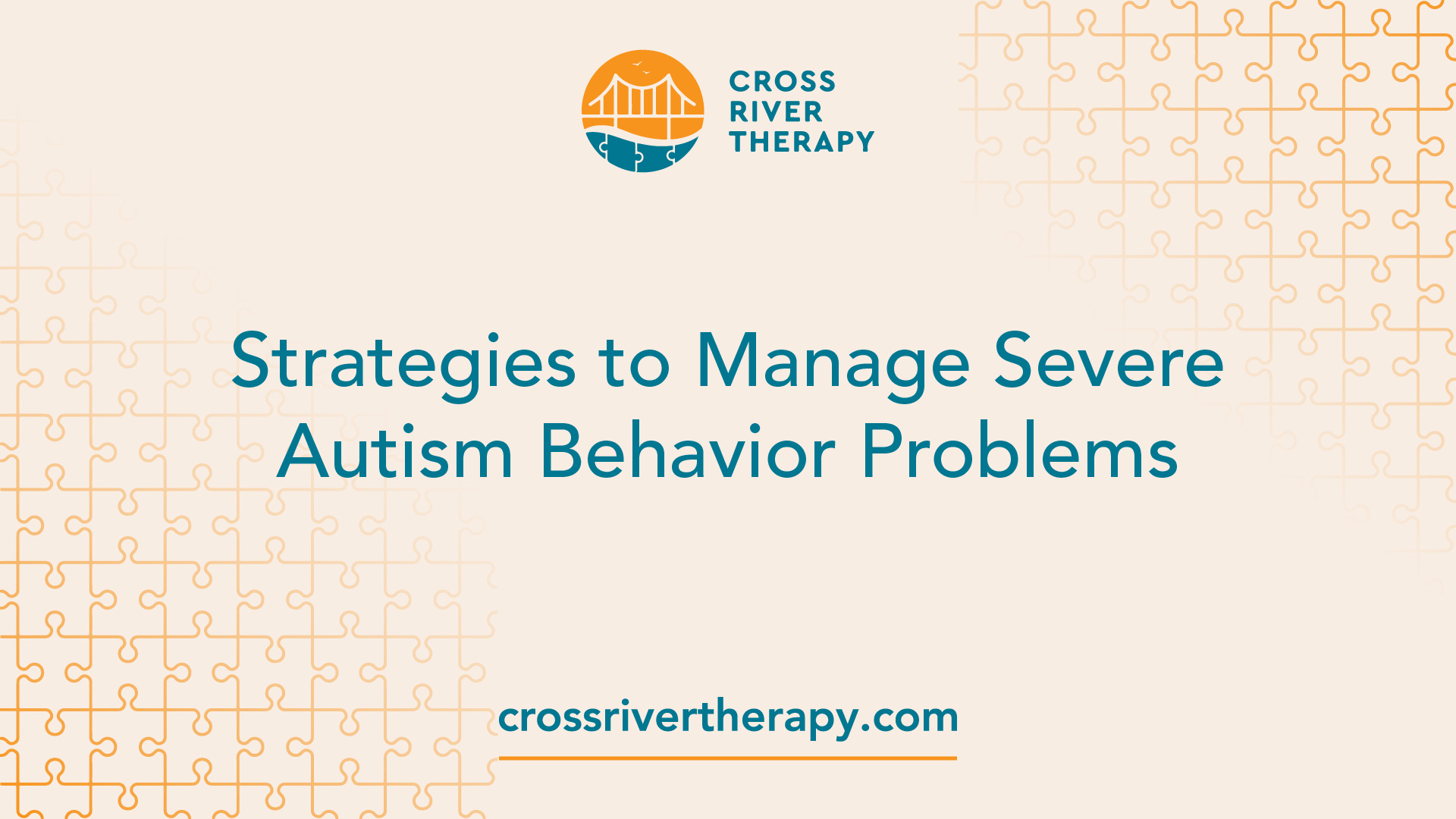Talking about ASD with siblings—tips from an Aba Therapist
Talking about ASD with siblings—tips from an Aba Therapist
Blog Article
Trick Symptoms And Signs to Acknowledge in Individuals With Behavior Autism
When you experience someone with behavioral autism, identifying vital signs and symptoms is necessary. You could observe challenges in social communications and interaction, in addition to a strong demand for routines. Additionally, sensory sensitivities can cause overwhelming experiences. Comprehending these traits can enhance your support and treatments, however there's even more to discover about just how these behaviors materialize in everyday circumstances. Let's discover what these indications truly look like.
Difficulties in Social Communications
When you interact with a person on the autism spectrum, you might observe they have a hard time with social hints and communication. These challenges can make social interactions feel overwhelming for them.
Furthermore, you may locate that they like routines and familiar setups, which can restrict their determination to take part in brand-new social scenarios. When they do engage, they might talk regarding their interests in wonderful information without seeing if you're interested. This can bring about prejudiced conversations that leave you really feeling separated. Recognizing these difficulties can help you approach interactions with compassion and persistence, cultivating a much more comfy setting for both of you.
Difficulty With Verbal and Non-Verbal Communication

Identifying these signs is essential, as it helps you better assistance and involve with individuals on the autism spectrum. By understanding their interaction obstacles, you can promote extra significant connections and provide an extra encouraging setting.
Repetitive Habits and Regimens
Interaction challenges typically come with various other indicators of autism, such as recurring habits and a solid choice for regimens. You might observe that people with autism often take part in certain, repetitive actions, like hand-flapping, rocking, or repeating expressions. These actions can supply comfort and a sense of control in a commonly frustrating globe.
Regimens are equally crucial; many people grow when they follow an organized routine. You might locate that adjustments to these routines can result in substantial distress. As an example, if they have a daily ritual of consuming morning meal at a specific time or following a specific course to school, any disruption can trigger anxiousness.
Recognizing these patterns helps you comprehend their habits and give support. By fitting their need for routine and allowing repeated actions, you can develop an extra comfy atmosphere that reduces their challenges.
Sensory Sensitivities

Common Sensory Triggers
Sensory level of sensitivities can considerably influence life for people with autism, as particular stimuli often trigger frustrating reactions. Usual sensory triggers include loud sounds, brilliant lights, and solid scents. You may notice that unexpected noises, like sirens or alarm systems, cause stress and anxiety or distress. Similarly, fluorescent illumination in stores can really feel extreme and uneasy. Structures can also play a substantial function; rough materials or specific food structures may be intolerable for you. Furthermore, crowded areas can overwhelm your detects, making it difficult to focus or kick back. Recognizing these triggers can help you handle your environment much better. By recognizing what impacts you, you can take steps to lessen discomfort and improve your daily experiences.
Behavior Actions Discussed
Understanding your behavioral responses to sensory sensitivities is crucial, as they usually expose how you interact with the globe. You may likewise discover yourself looking for particular sensory experiences, like deep stress or quiet atmospheres, to help ground on your own. Recognizing these patterns helps you recognize your needs far better and can assist how you communicate them to others.
Coping Techniques Summary
Acknowledging your sensory level of sensitivities is just the initial step; currently it's time to check out coping techniques that can assist you manage those experiences effectively. Start by developing a sensory toolkit tailored to your needs. This can include noise-canceling headphones, fidget toys, or relaxing fragrances. Establishing a structured routine can also provide predictability, lowering anxiety around sensory overload. When you feel overwhelmed, take breaks in a peaceful space to collect yourself. Exercising mindfulness strategies such as deep breathing can assist ground you in the minute. Additionally, interact your demands with those around you; having encouraging buddies and family members can make a huge distinction. Bear in mind, locating what works best for you might take time, so be open and patient to attempting brand-new approaches.
Restricted Passions and Focus
While numerous individuals develop a variety of passions, those with autism usually demonstrate restricted rate of interests and an extreme concentrate on certain topics. You could see that someone with autism can spend hours delving into their favored subject, whether it's a specific sort of train, a specific motion picture, or a clinical principle. This extreme focus isn't just a hobby; it can come to be a central component of their identification and social communications.
You might locate that discussions focus on these rate of interests, and they might struggle to participate in click here for info wider topics. For them, these focused passions provide convenience and a sense of proficiency. While it is essential to urge exploration of brand-new subjects, valuing their passions is equally vital. By understanding and recognizing these limited interests, you can promote an encouraging setting where they feel valued and comprehended, enabling for even more purposeful links and interactions.
Emotional Regulation Problems
People with autism typically deal with challenges in emotional policy, which can be influenced by their intense focus on certain rate of interests. You might notice that when an individual is deeply taken part in a recommended activity, they can experience solid emotions, whether excitement or aggravation. When points do not go as intended., this strength occasionally makes it tough for them to shift equipments or handle their feelings - Aba Therapist Near Me.

Variability in Developmental Milestones
When it concerns developmental milestones, you'll observe that people with autism usually show a wide variety of irregularity. Some may hit turning points promptly, while others might lag behind or progress at a different rate. You could see a youngster stand out in language skills but battle with social communications. This variance can be complex, as typical criteria do not constantly apply.
It's necessary to acknowledge that each individual's journey is distinct. Observing these patterns can assist you understand their staminas and needs much better.
Frequently Asked Questions
Exactly How Is Autism Diagnosed in Children and Grownups?
To identify autism in adults and kids, professionals examine habits, communication abilities, and social interactions. If an individual meets the requirements for autism range condition., they usually utilize standard tests, meetings, and observations to identify.
Exist Various Sorts Of Autism Spectrum Disorders?
Yes, there are different types of autism spectrum disorders, consisting of Asperger's disorder and pervasive developing disorder-not or else defined. Each kind differs in extent and characteristics, so comprehending these distinctions can assist you much better support people with autism.
What Treatments Work for People With Autism?
When considering effective therapies for people Continued with autism, you'll locate choices like Applied Actions Evaluation, speech treatment, and work-related treatment. Each approach can help enhance interaction, social abilities, and daily working customized to individual demands.
Can People With Autism Lead Independent Lives?
Yes, people with autism can lead independent lives. With the right support, skills training, and resources, you can help them establish self-sufficiency, handle day-to-day tasks, and flourish in different environments, cultivating their self-reliance.
How Can Households Support Liked Ones With Autism?
You can support your loved ones with autism by producing a structured setting, encouraging their rate of interests, practicing patience, cultivating communication, and promoting social abilities. Commemorate their achievements, no matter how little, and develop a helpful community.
Although several people on the autism range can utilize and comprehend language, they commonly deal with substantial obstacles with both non-verbal and spoken communication. Acknowledging these signs is vital, as it aids you much better assistance and involve with people on the autism web range. You may see that people with autism commonly involve in details, repeated actions, like hand-flapping, shaking, or repeating expressions.Sensory sensitivities can substantially affect day-to-day life for individuals with autism, as certain stimuli frequently activate overwhelming reactions.When it comes to developing milestones, you'll discover that people with autism often show a wide array of irregularity.
Report this page